Have you ever had that experience of waking up and not remembering that it’s a bank holiday and wondering why everything is so quiet? Well that’s happened to us three times since arriving – except that it wasn’t a question of not remembering: we just didn’t know. The day after I arrived (31st July) was the Feast of San Ignacio. August 15th was the Feast of the Assumption (‘Ferragosto’ as it is know in Italy). And August 24th was the official holiday for the Bilbao Fiesta (Semana Grande). (I now have a list of holidays: apart from the days at Christmas, New Year and Easter, they seem to have an additional seven days here!)
Last Wednesday, however, was even quieter, and although we were initially puzzled by this when we woke up, we soon remembered that it was the day of the General Strike, called in the Basque Country and Catalunya to protest against the cuts. It really was exceptionally quiet all day in the Casco Viejo: no shops open, but even more extraordinarily, no bars or cafes or restaurants open. The streets – usually teeming with people eating and drinking – were silent. Even ours, one of the noisiest in town, was silent, and the street looked quite imposing without the throngs.
It wasn’t quite so quiet on the other side of the river, though, in ‘El Ensanche’, the new town. There were helicopters overhead and a massive march – thousands of people – made its way down the tree-lined main avenue, the Gran Via. You will have read about violent protests in Madrid on the same day. This wasn’t violent, but it was a BIG march. (Below, some pictures I took.)
Of course nationalism has as much to do with it as socialism. Franco was not only a fascist but also did everything possible to suppress the two main nationalist threats to the Spanish union, Catalunya and the Basques, partly by setting out to destroy their languages and culture, and so the powerful combination of socialism and nationalism developed here. Both here and in Catalanya recent protests against the government in Madrid have had strong nationalist overtones, especially in Catalunya. A couple of weeks ago in Barcelona there was a massive pro-independence demonstration, and they have declared their intention of holding a referendum for independence: the parallels with Scotland are clear.
The situation is now so serious that the King stepped in last week and warned Catalunya that independence is not possible within the Spanish constitution and that a referendum would be illegal. It’s a historic moment, seen as the biggest threat to Spanish unity since the post-Franco settlement in the 70s. And whilst the King has been a powerful force for democracy since Franco left – he led the establishment of a parliamentary democracy when he took over at Franco’s death – people have not forgotten that the monarchy, aristocracy, church and military formed the conservative anti-democratic alliance of the civil war, and their influence remained strong during the Franco years.
One of the main tensions at present is to do with the fiscal arrangements that exist between Madrid and the autonomous regions around the country, each of which has its own parliament. The Basque Country is the only one of the regions which is allowed to collect its own tax. The arrangement is that the Basque government collects tax and pays some of it to Madrid, whilst in the other regions, Madrid collects the tax and pays part of it to the regions. At a time when sweeping cuts are being imposed by the central government, Catalunya, the wealthiest area of Spain along with the Basque Country, clearly wants to cut free of government fiscal control and have the power to control its own taxation and spending.
Both Catalunya and Euskadi have called early regional elections in the autumn, too, a move designed to elect an even stronger anti-conservative, anti-austerity alliance. We’ll see what happens.
http://www.gaztazatibat.eu/berriak/trailer-english-version
It’s only three minutes long, and you’ll hear the Basque language and see some classic Basque faces, along with a bit of Scots! The film is called ‘Gazta Zati Bat’, translated as ‘A Peace [sic] of Cheese’. It was shown recently in the Inverness Film Festival, apparently. Below, the poster for the film, plus a shot from the film of some Basque dancers called Joaldunak on the Royal Mile in Edinburgh. (They wear sheep-like costumes with bells etc - see www.nabasque.org/Pages/Ihauteria.htm to see what it all means.) And below that, a shot I took of a Basque sheep and shepherd dance at the fiesta in Bilbao...
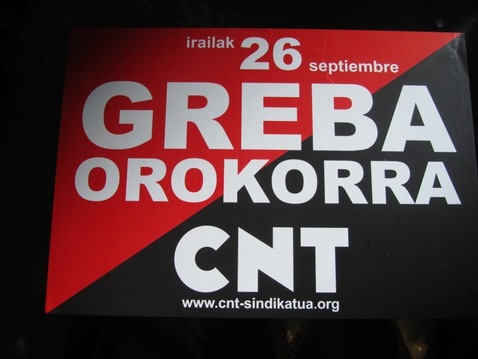
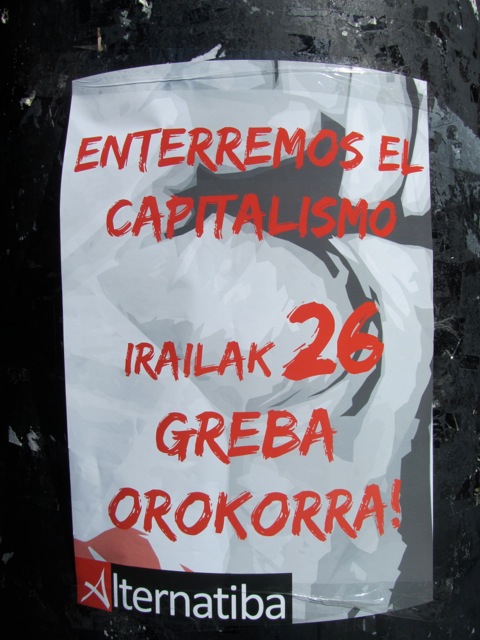
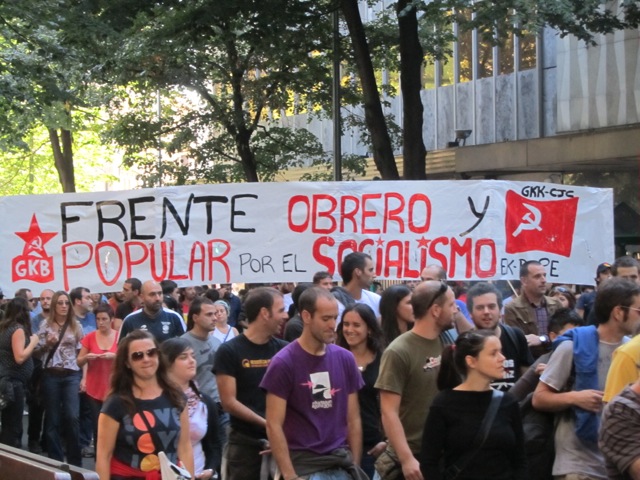
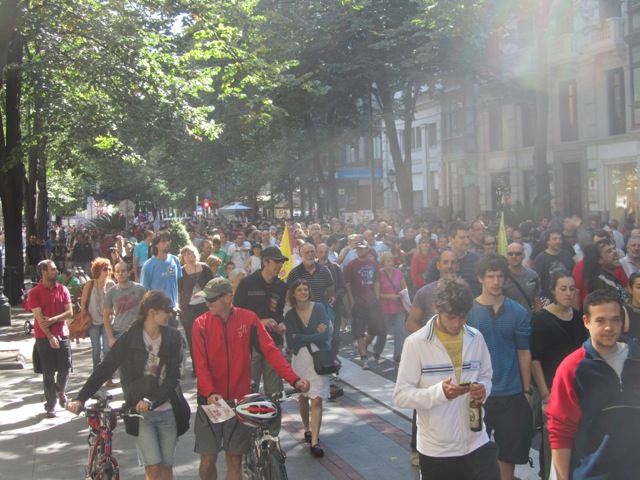
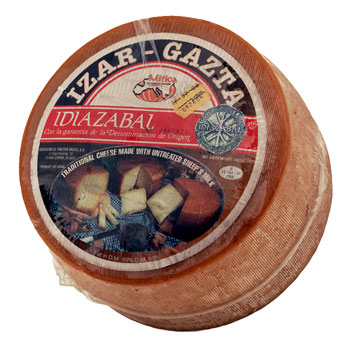
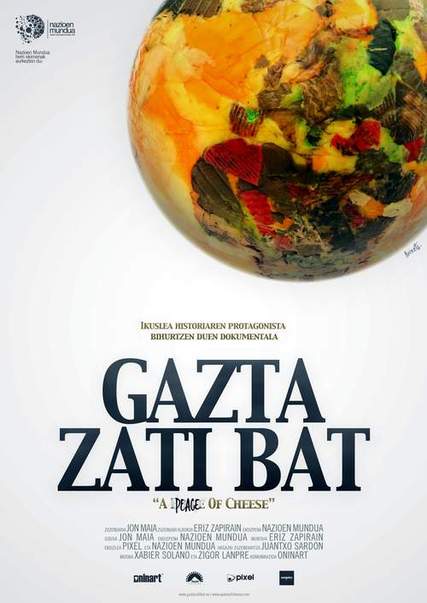
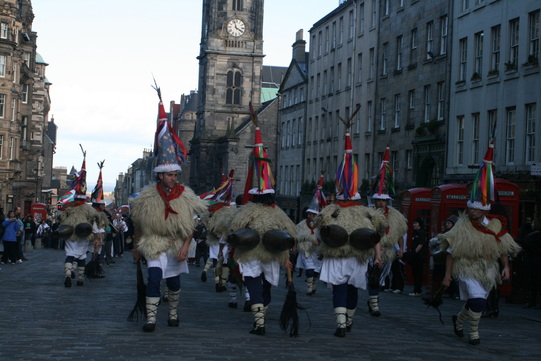
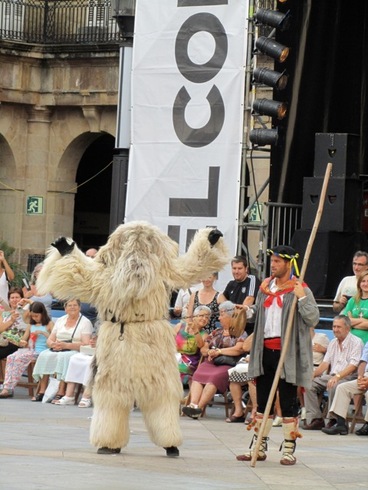
 RSS Feed
RSS Feed